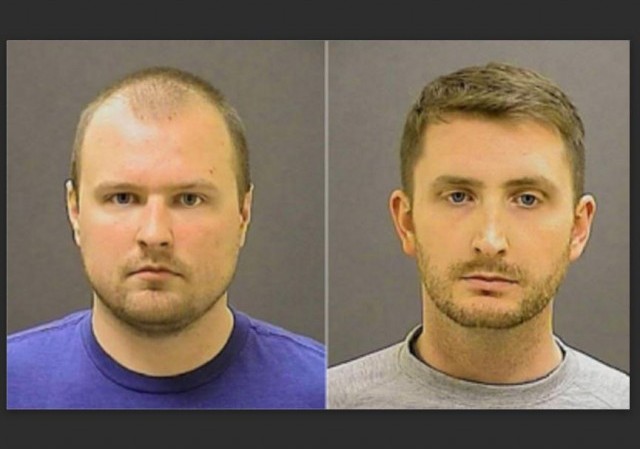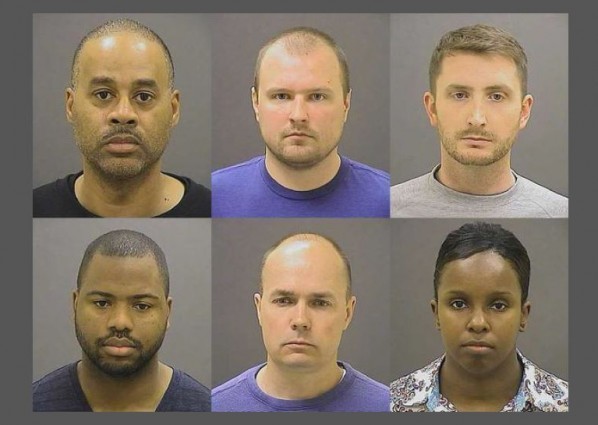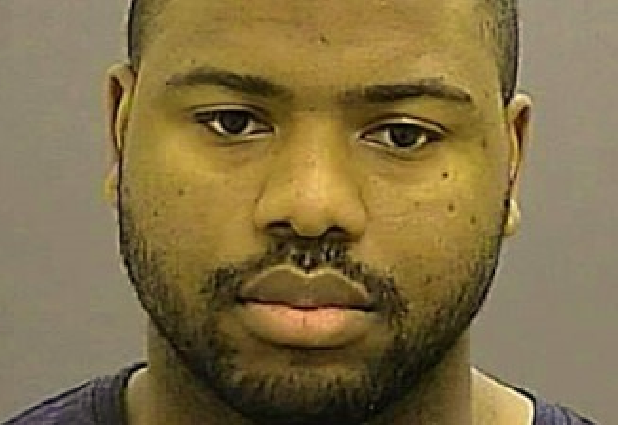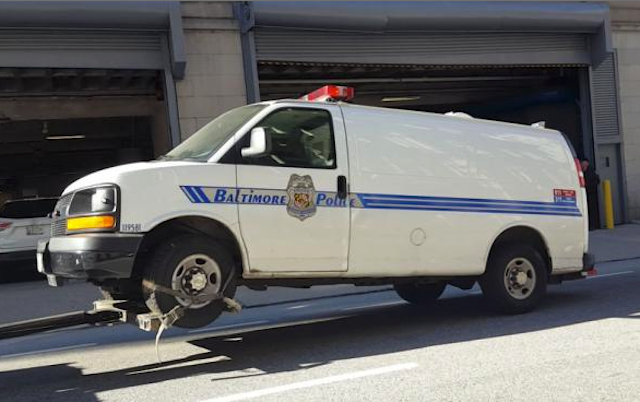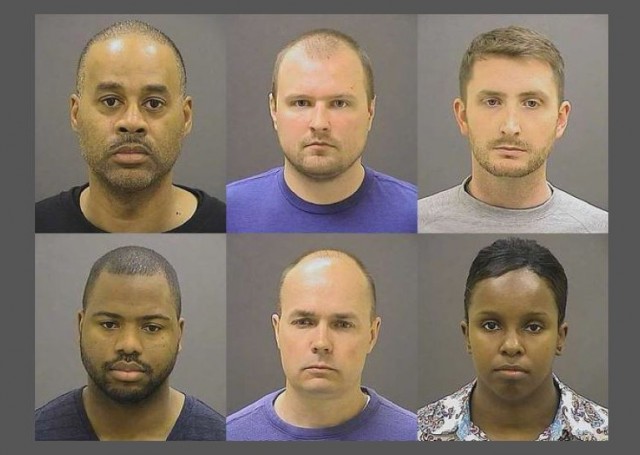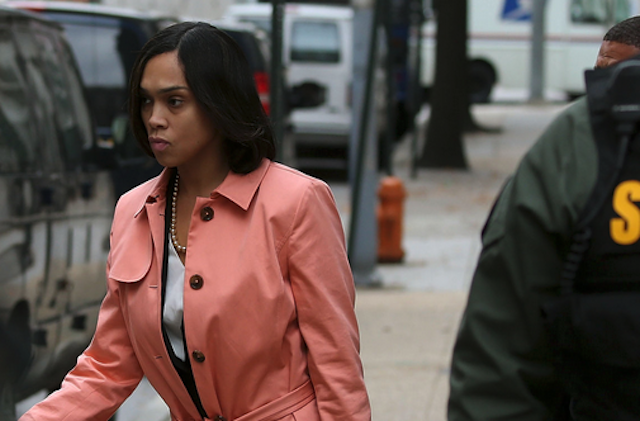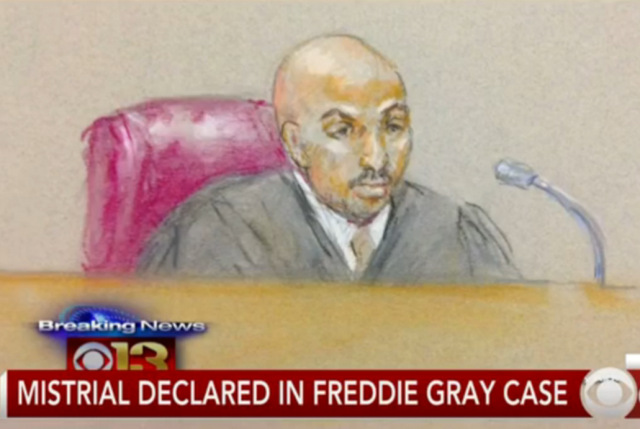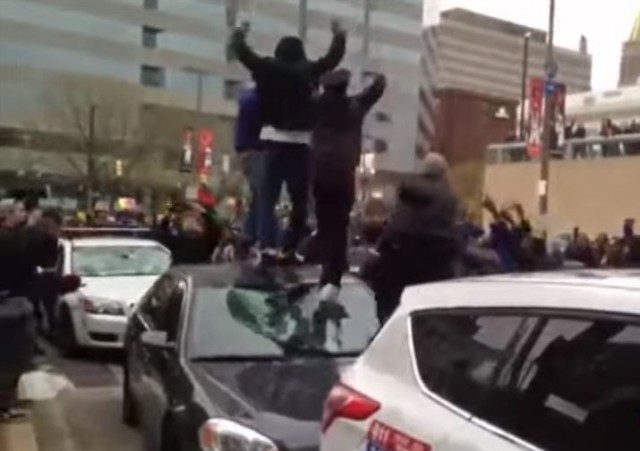Freddie Gray Tag
Freddie Gray: Officer Edward Nero Trial Set for May 10
Officer Edward Nero: May 10
Officer Nero was primarily involved as one of the arresting officers, and is charged with assault and reckless endangerment. [caption id="attachment_164896" align="alignnone" width="500"]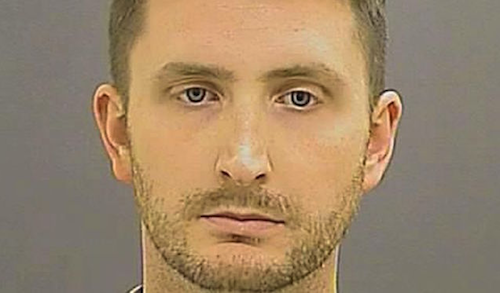 Officer Edward Nero[/caption]
Officer Edward Nero[/caption]
Freddie Gray: MD’s Highest Court Says Officer Porter Must Testify
Freddie Gray Trial: Baltimore to Add Cameras Inside Police Vans
Freddie Gray: MD High Court Delays All Officer Trials
Freddie Gray Defense: Legally irrelevant whether Freddie’s knife was illegal
Freddie Gray: Porter Not Required to Testify Against Arresting Officers
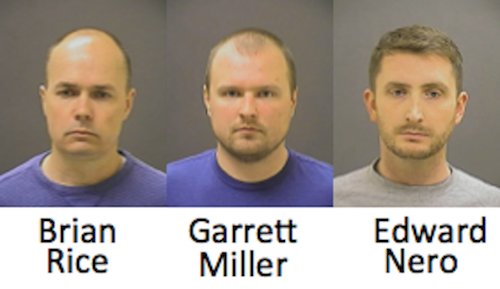
Freddie Gray Trial: Porter Jury Was One Vote Shy of Acquittal
Freddie Gray Trial: Van Driver’s Trial Delayed
Freddie Gray Case: Appellate Court Puts Hold On Officer’s Compelled Testimony
Freddie Gray Trial: William Porter ordered to testify in trials of other officers
Freddie Gray Trial: Porter’s Re-Trial Set for June 13
“The evidence established that Porter went above and beyond his duty”
Freddie Gray Trial: The Schadenfreude Edition
Freddie Gray Trial: HUNG JURY, ALL CHARGES, MISTRIAL DECLARED
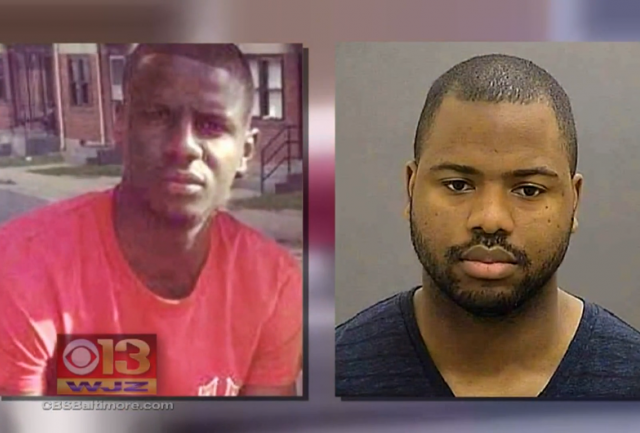 Page Crowder, a Baltimore State's Attorney for 21 years before retiring, has been perhaps the best-informed critic of Mosby's impetuous conduct in this case, noting at her blog during the trial:
Page Crowder, a Baltimore State's Attorney for 21 years before retiring, has been perhaps the best-informed critic of Mosby's impetuous conduct in this case, noting at her blog during the trial:
Freddie Gray Trial VERDICT WATCH: Verdict or Mistrial today?
UPDATE: (12/16/15, 3:01PM): Told that both Porter and Mosby are in the courtroom.
UPDATE: (12/16/15, 2:43PM): State's Attorney Mosby is in the courtroom, first time since deliberations began.
UPDATE: (12/16/15, 2:34PM): Another buzz from the jury.
UPDATE: (12/16/15, 12:38PM): Jury breaking for lunch.
UPDATE: (12/16/15, Noon): Jury requested a transcript of witness testimony. This request was denied. The identity of the particular witness was not released.
UPDATE: (12/16/15, 11:54AM): Prosecution arrives at courthouse to hear what jury note is all about.
UPDATE: (12/16/15, 11:38AM): There are reports of a "buzz" from the jury, and CNN is reporting that the jury has a message for Judge Williams. WBAL TV reports the jurors have a question. Might be merely a lunch-related matter.
Today begins the third day of deliberations in the "Freddie Gray" trial of Baltimore Police Officer William Porter. Porter is on trial for involuntary manslaughter (10 year penalty), second-degree assault (10 year penalty), reckless endangerment (5 year penalty), and misconduct in office (undefined penalty). These charges stem from the in-custody spinal injury of Freddie Gray in a police van following his arrest on April 12. Gray would die some days later. We've covered the "Freddie Gray" matter extensively from its inception, here at Legal Insurrection. We'll keep you updated here as news emerges over the course of the day. In the meantime, you can follow along with the day's developments in the Twitter feed embedded below.
Freddie Gray Trial VERDICT WATCH: Jury Reports It Is Hung
UPDATE (5:37PM, 12/15/15): That's it for today, folks. No verdict, and jury sent home for the night. Deliberations start up again in the morning.
UPDATE (4:01PM, 12/15/15): In a shocking statement, trial Judge William Barry told the hung jury to "Compromise if you can do so without violence to your own moral judgement," according to reporting by ABC News.
Such a statement coming from a trial judge is shocking because "compromise verdicts" in criminal cases are anathema to American concepts of jurisprudence and due process.
Each juror is sworn to vote for a guilty verdict on a charge only if they honestly believe that each and every element of that charge has been proven beyond a reasonable doubt.
If they do not so honestly believe this to be the case for a given charge, they are sworn to vote not guilty on that charge. Period.
This lies at the core of the legal mandate that the defendant has the presumption of innocence.
There is no proper room for compromise in such a judicial framework.
While it is true that criminal trial jurors do from time to time arrive at so-called compromise verdicts, such instances are considered defects in the judicial system, not legitimate outcomes.
If ever there were grounds for reversal of any conviction, this is it.
At 3:40PM the jury in the "Freddie Gray" trial of Baltimore Police Officer William Porter sent out a note to Judge Williams that they were deadlocked.
As is normal in such cases the Judge essentially just told them to try again. It's reported that he re-read the jury charges to them prior to sending them back into deliberations, also normal. There was no word on whether he also read them an Allen charge, named after the 1896 Supreme Court case in which they first approved the instruction (Allen v. United States, 164 US 492). The Allen charge is a jury instruction used specifically in such circumstances in which the jury reports they cannot arrive at a unanimous verdict. It essentially reminds the jury of all the resources and time that have been put into this trial, notes that another jury is unlikely to be better suited to reaching a verdict than they are, and tells them to get their act together, get back into the jury room, and come back with a verdict, darn it!Freddie Gray Trial: Defense Moves for Mistrial After Schools Warn of Riots
I am very concerned about the possibility of civil disorders following announcements of the verdict.
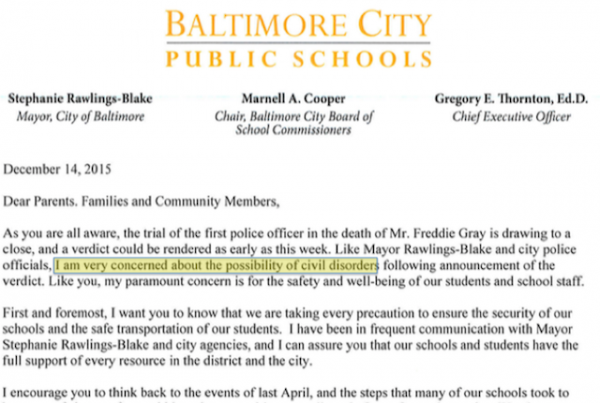 That full letter is embedded below.
That full letter is embedded below.
Donations tax deductible
to the full extent allowed by law.
CONTRIBUTORS
- William A. Jacobson
Founder
- Kemberlee Kaye
Sr. Contrib Editor
- Mary Chastain
Contrib Editor
- Mike LaChance
Higher Ed
- Leslie Eastman
Author
- Vijeta Uniyal
Author
- Stacey Matthews
Author
- Jane Coleman
Author
- James Nault
Author
- Elizabeth Stauffer
Author
- Mandy Nagy
Editor Emerita
- Learn more about the Contributors


